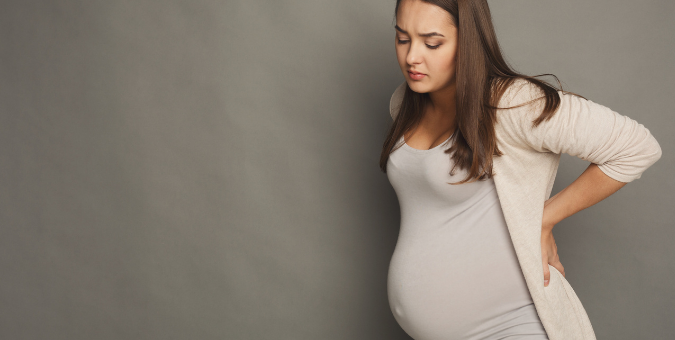
There is never a good time to receive a cancer diagnosis, but receiving a diagnosis during pregnancy can be particularly devastating. What should be a time of celebration, excitement and anticipation is tainted with anxiety and fear over what the future holds, for mum, the baby and the wider family.
Diagnosis
Pregnancy does not change the symptoms of cancer. However if cancer is present, the symptoms can be confused for natural changes in the body caused by the pregnancy.
The most common cancers diagnosed during pregnancy are:
- Melanoma (skin cancer)
- Breast cancer
- Cervical cancer
- Lymphoma (cancer of the lymphatic system)
- Leukemia (cancer of the blood/bone marrow)
There are various different tests that may be carried out to determine whether the mum has cancer, depending on what type of cancer is suspected. Some tests are safe for both mum and baby, but some are advised against as they can injure the foetus. Your doctor will be able to advise you about the options and any risks involved with each of them.
Treatment
The earlier treatment can start, the better the chances of survival. Treatment will vary depending on what type, stage (how advanced) and grade (growth rate) the cancer is. Treatment of cancer during pregnancy can be complicated. Though it is rare for the foetus to be harmed by the cancer, they can be harmed by some of the treatments that would otherwise be recommended, especially in the first trimester. Some treatments, for example radiotherapy, are advised against for the entirety of the pregnancy. Other treatments, for example chemotherapy, are considered to be safer for the latter stages of pregnancy. If surgery is required, this can sometimes take place during the pregnancy, with relatively little risk to the foetus.
A difficult decision
Mums-to-be are often confronted with a very difficult decision. There is a need to balance mum’s health, with the safety of the unborn baby. Instinctively, parents want the best for their unborn baby, but this will often mean sacrificing mum’s own health.
Sometimes, the commencement of treatment will be recommended after the natural arrival of the baby. Sometimes a doctor will advise about bringing the birth date forward so as to allow the mum to begin treatment without too much delay, whilst not compromising the safety and development of the baby.
It is not uncommon however for parents to be confronted with an option to terminate the pregnancy in order to optimise the mum’s chance of survival. This usually happens if cancer is found during the earlier stages of pregnancy. It is a very difficult decision for parents to make.
Parents are influenced and torn by many factors, for example, older siblings, religious beliefs, the effects of treatment on future fertility, etc.
Medical Care
A mum-to-be with a diagnosis of cancer would be looked after by a multi-disciplinary team of doctors. This would usually involve an obstetrician (a specialist doctor looking after pregnant women) and an oncologist (a specialist doctor in cancer). A General Practitioner and midwife would usually ordinarily be involved in the management of the rest of the pregnancy and treatment. This ensures that mum has the best advice available to weight up the risks to her and her baby, and if appropriate, proceed with her pregnancy in the safest way possible for them both.
Support
It is important with any unusual symptoms that you bring your concerns to your General Practitioner as soon as you can. Do not be afraid to voice any concerns if you are worried that your symptoms are being dismissed because of your pregnancy.
Whilst a diagnosis of cancer during pregnancy will be a very lonely experience, you are not alone. Charities such as Mummy’s Star have already supported hundreds of families who have suffered a diagnosis of cancer during pregnancy. They will be able to support you and put you in touch with other families who have had a similar experience.
Cancer misdiagnosis claims
Thankfully cancer in pregnancy is relatively rare. According to an article in the NCBI, the incidence is 1 in every 1000 pregnancies equating to 0.07% to 0.1% of all malignant tumours. The downside to such a low incidence of cancer in pregnancy is that unfortunately, when symptoms suggestive of a cancer present themselves, they are often overlooked as being the natural physiological changes that take place during a normal pregnancy. Doctors can attribute the signs of undiagnosed cancer to the pregnancy which in turn can complicate and delay the process of making a diagnosis.
More often than not, due to the difficulties in making a diagnosis during pregnancy, a doctor could be forgiven for the delay. Sometimes however, more could have been done to make a diagnosis and start treatment earlier.
We are here to help
When clients instruct a clinical negligence solicitor, it is because they have been let down by the medical profession.
We recognise the devastating impact that a delay in diagnosis of your cancer and/or treatment can have, especially in a situation where that delay impacts not only you, but your baby and your family. Our team at Enable Law will work with you to determine what happened, whether the care provided was substandard and are committed to helping you get the answers you need.
If you have questions about the care you received and believe delays occurred or mistakes were made, we are here to help.

















